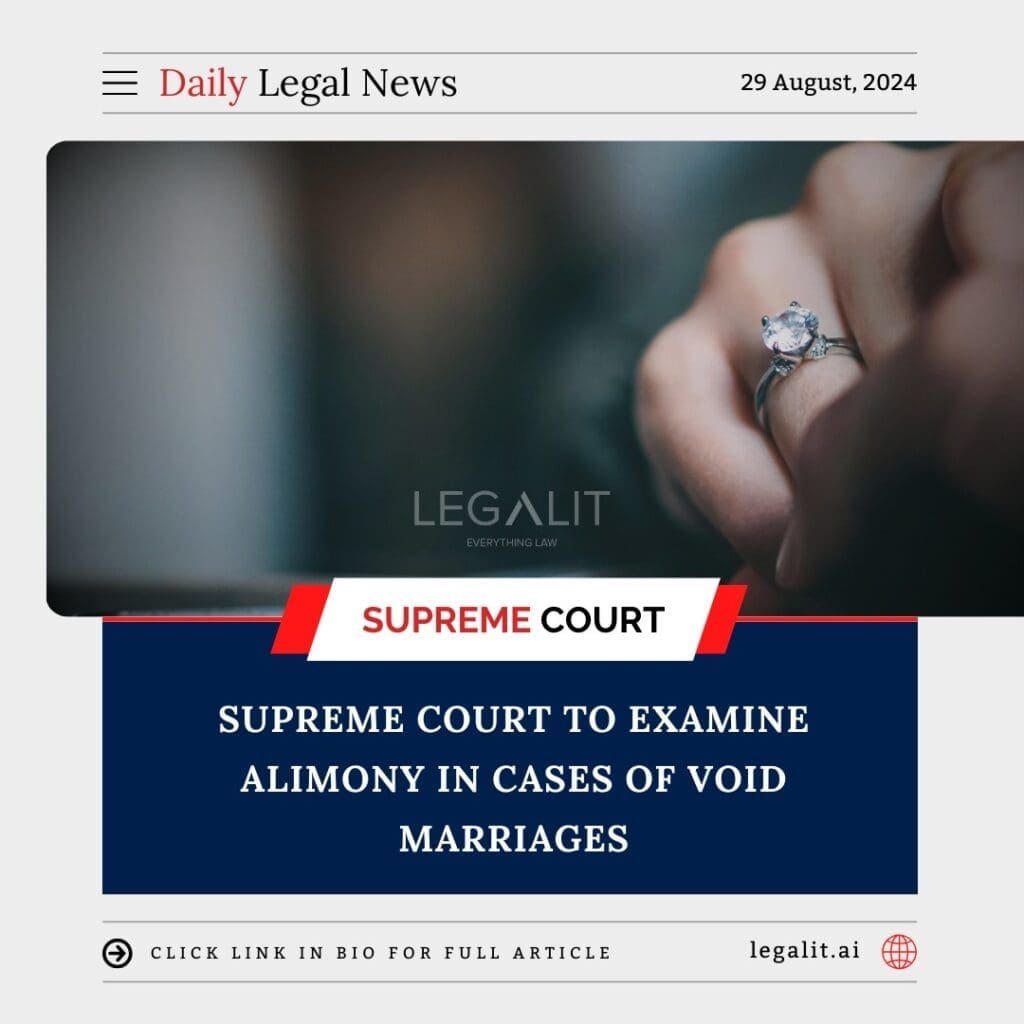
The Supreme Court of India is set to review a critical legal question: whether alimony can be granted in cases where a marriage is declared void. This issue has significant implications for family law, particularly in how courts address financial support obligations in cases where the marriage itself is deemed invalid.
Context of the Review:
- Understanding Void Marriages:
A marriage may be declared void if it fails to meet the essential legal requirements stipulated under the law. Common grounds for declaring a marriage void include the absence of consent, prohibited relationships, or other fundamental legal deficiencies. Unlike a divorce, which dissolves a valid marriage, a void marriage is considered never to have legally existed. - Alimony and Financial Support:
Alimony, or spousal support, is typically awarded to ensure financial stability for a spouse following the dissolution of a marriage. The standard practice involves awarding alimony based on the principle of providing fair financial support to a spouse who may be economically disadvantaged after the separation. However, the legal framework for alimony in cases where a marriage is declared void is less clear.
Supreme Court’s Examination:
- Legal Questions at Hand:
The Supreme Court’s examination will focus on whether the principle of alimony should extend to marriages that are declared void. This includes assessing if financial support obligations should be imposed when the marriage itself is invalid from its inception. - Potential Precedents:
The Court’s decision will have a profound impact on how family law addresses financial settlements in such cases. A ruling in favor of granting alimony could set a precedent for similar cases, influencing how courts handle financial support when marriages are annulled or declared void.
Implications of the Review:
- Impact on Spousal Rights:
If the Supreme Court decides that alimony can be granted in cases of void marriages, it could affirm the principle that financial support should be available to parties who have been economically disadvantaged, regardless of the marriage’s legal status. This would emphasize fairness and support for individuals who may have relied on their spouse for financial stability. - Legal and Policy Adjustments:
The ruling may prompt legal reforms or adjustments in family law to clarify the conditions under which alimony can be awarded. It could lead to the establishment of clearer guidelines and criteria for determining financial support in cases of void marriages. - Impact on Future Cases:
The Supreme Court’s decision will influence how lower courts approach similar cases in the future. It will provide guidance on whether and how financial support obligations should be addressed when a marriage is deemed void, potentially affecting numerous individuals navigating the complexities of family law.
Broader Implications:
- Fairness and Equity:
The review highlights the need for equitable treatment in family law, ensuring that financial support mechanisms are fair and just, even in cases where the marriage itself is invalid. It underscores the importance of protecting the financial rights of individuals who may be disadvantaged due to legal complexities. - Legal Clarity:
A clear ruling from the Supreme Court will provide much-needed clarity on this aspect of family law, helping to resolve ambiguities and ensuring consistent application of legal principles across different cases.
Conclusion:
The Supreme Court’s examination of whether alimony can be granted in cases where a marriage is declared void represents a significant step in addressing important issues within family law. The Court’s ruling will have far-reaching implications for how financial support is handled in cases involving void marriages, potentially shaping the future of family law and ensuring that legal principles are applied with fairness and clarity.